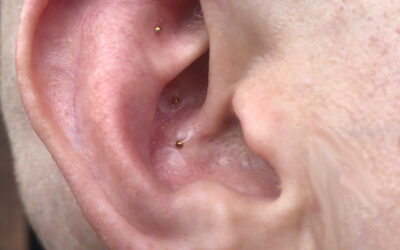As the prevalence of acupuncture in the U.S. grows, many practitioners including myself are going on to conduct doctorate-level research in order to advance Traditional East Asian Medicine (TEAM) through broader understanding and accessibility. As I know many people are seeking the best health information available to them, I wanted to suggest a few tips on discerning legitimate health information from junk science.
One of my ultimate goals through Vivacity Acupuncture is to empower people with more agency over their own health– being able to conduct original research and raise awareness of the legitimate research that has already been done are means to this end.
Setting Standards for Research Quality
Historically, the lack of research in the English language or translated from other languages has limited the understanding and advancement of acupuncture in this country. In the West, the standard study that comes to mind is often a double-blind and randomized placebo-controlled trial. Applying this standard to acupuncture, it becomes apparent that it is difficult to achieve a true double-blind where both the participant and practitioner are not aware of who is receiving treatment and who is receiving placebo. One way this had been handled in early acupuncture research is that the practitioner wouldn’t be an acupuncturist– seems odd, right? A study of acupuncture where an acupuncturist cannot perform the treatment protocol? To address the unique considerations for acupuncture studies such as this double-blinding dilemma, in 2010, a multi-site study provided a comprehensive analysis and guidelines for achieving fairness in study design and reporting of acupuncture randomized controlled human clinical trials [1]. Now the agreement internationally is to use standards (known as CONSORT and STRICTA) to avoid bias in study design and reporting of randomized controlled trials of acupuncture as had been the norm.
A Decade Analyzing Acupuncture for Numerous Conditions
Insurance companies base their clinical practice guidelines, or the policy that determines which healthcare services they will and won’t cover, on research. Higher-level research, such as meta-analyses or Cochrane reviews that systematically analyze numerous trials at once, is given more credence. Two of the initial conditions, in a 2010 meta-analysis, that acupuncture was well-documented as effectively treating are osteoarthritis of the knee and low back pain [2]. The researchers conclude that acupuncture has specific effects beyond placebo for a wide range of pain syndromes, and since this conclusion had already been broadly reflected in available research further study should shift focus from placebo-related questions to more practical questions such as the number of treatments likely to produce the desired effects. The continually expanding list of what acupuncture can effectively treat has grown with new research being published to include a wider variety of orthopedic pain and fibromyalgia [3, 4, 5, 6, 7, 8, 9] as well as a few other conditions such as nausea [10]. The more high-quality research that is conducted, the more probable it is that insurance companies will expand coverage for the practice that millions of Americans are now using each year.
How to Easily Find the Best Research
The added benefit of having more legitimate research done on acupuncture, by practitioners who understand its science and practice, is that it can help debunk myths about acupuncture that have been propagated by journalistic pieces masquerading as science. In fact, a few repositories of Evidence-Based research (like this one) pertaining to acupuncture have been created. If you are unfamiliar with the term ‘evidence-based,’ this term has become the gold standard in the last decade to refer to standards of care that stand up in real-world scenarios. The Evidence-Based Acupuncture repository is also a great place to start if you are curious whether acupuncture may work for a specific symptom or condition you are experiencing. Pay special attention to any meta-analyses that you see as these provide more reliable evidence than a single study. Many acupuncturists specialize in a set of conditions, so reaching out to a licensed acupuncturist in your area to ask if what you are seeking treatment for is a condition they treat is also a good starting point.
References:
[1] Hammerschlag, R., Milley, R., Colbert, A., Weih, J., Yohalem-Ilsley, B., Mist, S., & Aickin, M. (2011). Randomized Controlled Trials of Acupuncture (1997-2007): An Assessment of Reporting Quality with a CONSORT- and STRICTA-Based Instrument. Evidence-based complementary and alternative medicine: eCAM, 2011, 183910. https://doi.org/10.1155/2011/183910
[2] Hopton A, MacPherson H. Acupuncture for chronic pain: is acupuncture more than an effective placebo? A systematic review of pooled data from meta-analyses. Pain Pract. 2010 Mar-Apr;10(2):94- 102.
[3] Vickers AJ, Cronin AM, Maschino AC, Lewith G, MacPherson H, Foster NE, Sherman KJ, Witt CM, Linde K; Acupuncture Trialists’ Collaboration. Acupuncture for chronic pain: individual patient data meta- analysis. Arch Intern Med. 2012 Oct 22;172(19):1444-53.
[4] Liu L, Skinner M, McDonough S, Mabire L, Baxter GD. Acupuncture for low back pain: an overview of systematic reviews. Evid Based Complement Alternat Med. 2015;2015:328196.
[5] Zeng Y and Chung JW. Acupuncture for chronic nonspecific low back pain: An overview of systematic reviews. European Journal of Integrative Medicine. 2015; 7(2): 94-107.
[6] Yuan QL, Guo TM, Liu L, Sun F, Zhang YG. Traditional Chinese medicine for neck pain and low back pain: a systematic review and meta-analysis. PLoS One. 2015;10(2):e0117146.
[7] Cox J, Varatharajan S, Côté P, Optima Collaboration. Effectiveness of Acupuncture Therapies to Manage Musculoskeletal Disorders of the Extremities: A Systematic Review. J Orthop Sports Phys Ther. 2016 Jun;46(6):409-29.
[8] MacPherson H, Vertosick EA, Foster NE, Lewith G, Linde K, Sherman KJ, Witt CM, Vickers AJ. The persistence of the effects of acupuncture after a course of treatment: a meta-analysis of patients with chronic pain. Pain. 2017 May;158(5):784-793.
[9] Skelly AC, Chou R, Dettori JR, Turner JA, Friedly JL, Rundell SD, Fu R, Brodt ED, Wasson N, Winter C, Ferguson AJR. Noninvasive Nonpharmacological Treatment for Chronic Pain: A Systematic Review. Comparative Effectiveness Review No. 209. (Prepared by the Pacific Northwest Evidence-based Practice Center under Contract No. 290-2015-00009-I.) AHRQ Publication No 18-EHC013-EF. Rockville, MD: Agency for Healthcare Research and Quality; June 2018.
[10] Rithirangsriroj K, Manchana T, Akkayagorn L. Efficacy of acupuncture in prevention of delayed chemotherapy induced nausea and vomiting in gynecologic cancer patients. Gynecol Oncol. 2015 Jan;136(1):82-6.




